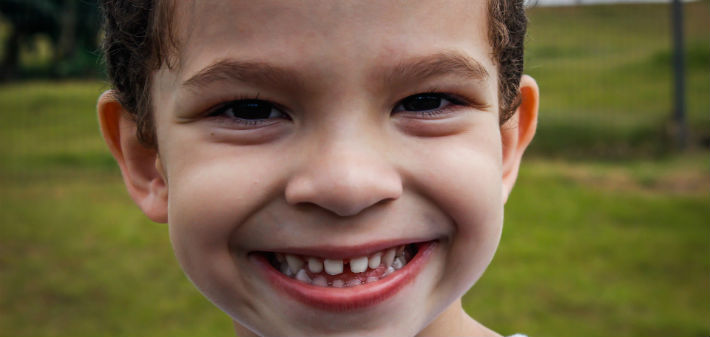From teething to permanent molars, your child’s developing teeth need to be taken care of with a thorough oral hygiene routine.
Baby teeth lay the foundation for your child’s permanent teeth. They cannot be ignored without bringing on a lifetime of dental issues. To avoid dental problems during your child’s formative years, it’s important to understand how teeth develop, how you as a parent can help to foster healthy teeth growth, and what resources are available, including the family dentistry services for children in Little Rock.
Baby Teeth – Begin Good Oral Health Habits Early
Tooth development actually begins during pregnancy when the fetus is between 6 and 8 weeks old. Tissue starts to line the jaw giving tooth buds room to grow so that by birth, the baby’s teeth are in place under the gums. At about 6 months of age, once teething begins, a cool teething ring can bring relief to a baby’s irritated gums to prepare for the first teeth to emerge.
The front teeth will come through first, and continue erupting in stages until 2 or 3 years of age. You will notice that these baby teeth will have spaces between them, as this provides room for the permanent teeth.
The best time to begin a regular oral health routine is during a child’s infancy. Use a sterile gauze pad to wipe the gums and remove plaque. Once the first tooth comes through, switch to a soft toothbrush and brush their teeth and gums gently with water. Once your child turns 1, don’t forget to schedule their first dentist visit and continue with regular appointments every six months.
As Your Child’s Teeth Grow and Develop
By the age of 6 or 7, a child’s permanent teeth will begin to push through. The same earlier pattern associated with their baby teeth repeats itself as the permanent front teeth arrive first, usually followed by the 6-year molars. Around 12 years of age, the second permanent molars, or 12-year molars, come through behind the first molars, with the rest of the permanent teeth continuing to push through until around the age of 13.
Be observant as your child’s permanent teeth emerge and baby teeth are lost. If you notice that their new teeth are coming in crooked, or out of alignment, it could be due to a condition called malocclusion, or bad bite. A bad bite can put your child’s teeth at risk for cavities and gum disease because overcrowding makes it so much harder to keep the teeth clean. This requires the attention of a dentist to see if treatment, such as orthodontics, is necessary.
Helping Your Child Care for Their Teeth
As they grow and develop, your child will become used to the daily dental care routine that you began when their baby teeth first pushed through. Once your child is old enough to brush and floss on their own, they can take over these responsibilities as long as you continue to monitor their habits. Have your child maintain a routine of brushing twice daily, after breakfast and before bed, and check to see that no food particles remain in between teeth or on the surfaces of the molars as new teeth emerge and develop into their teenage years.
Preventative dental care visits all throughout childhood can improve your child’s oral health and reduce the need for restorative services later in adulthood. To ensure your child will always have a healthy smile, contact the Arkansas Family Dental staff and start an oral health regimen that includes our family dentistry services for children in Little Rock.

